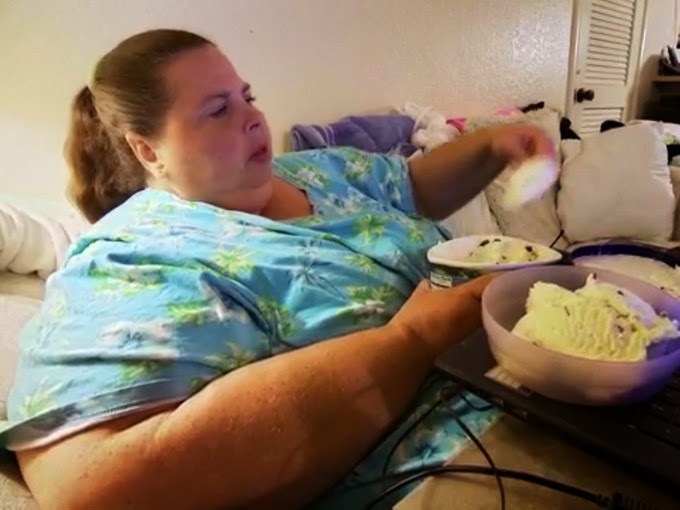
Are you at risk of ever becoming an enabler to a family member who eventually gets so super morbidly obese that they can barely get out of bed or are even confined to bed?
They are being maintained in this condition by enablers (usually a spouse or family member) who keeps bringing them enormous amounts of junk food.
I’ve noticed that in every single case (and I’ve seen quite a few of these shows), the enabler is obese, often morbidly, but functional enough to be a caregiver/enabler.
I just can’t imagine that anyone who works out at a gym, has a physically fit body and eats mindfully could ever become an enabler such that eventually, their “enablee” gets too heavy to leave their bed.
You’ve heard of the “addictive personality” or “addictive brain.” Is there a such thing as an “enabler personality” or “enabler brain”?
Many women refuse to serve their husbands the amount of junk food they request; perhaps they are “anti-enablers”?
Though most functional obese people aren’t enablers, most enablers on the TLC shows are quite obese and don’t do any exercise.
It’s easy for me to believe, just based on the behavior of the enablers, that most were abused as children, or grew up in an emotionally corrupt household, stripping them of the capacity to engage in an emotionally and physically healthy adult relationship.
Inside the Mind of a “600 Pound Life” Enabler
“Anyone can become an enabler, but those with low self-esteem or who have difficulty saying no, expressing feelings, or setting and maintaining personal boundaries are most at risk,” says David Sack, MD, a psychiatrist specializing in addiction disorders, and CEO of Promises Treatment Centers in Malibu and Los Angeles.

More Risk Factors for Becoming an Enabler to a Super Obese Person
“Enablers believe they are bad or cruel if they don’t help and are afraid of what might happen if they don’t,” continues Dr. Sack.
“They feel compelled to take on other people’s responsibilities, sometimes out of guilt or fear, but also in an attempt to gain control.”
Enablers or those at risk put the needs and desires of others ahead of their own. This may sound noble, but when it leads to disaster, it’s destructive.
“In an attempt to protect themselves from victimization, they prefer to keep the peace than address the problem and deal with the potential fallout,” says Dr. Sack.
This begs the question: How extensive could the fallout be, when the bedridden food addict can’t get up and do anything?
What kind of frightening fallout was sweet, loving, 900 pound Renee Williams capable of inflicting upon her children if they stopped bringing her huge amounts of food?
“Most people learn codependent behaviors from their role models growing up, especially if they were raised in an addicted or dysfunctional home,” says Dr. Sack.
“Others may suffer traumatic experiences early in life, which contribute to low self-esteem, a fear of abandonment and other codependent traits.”



































